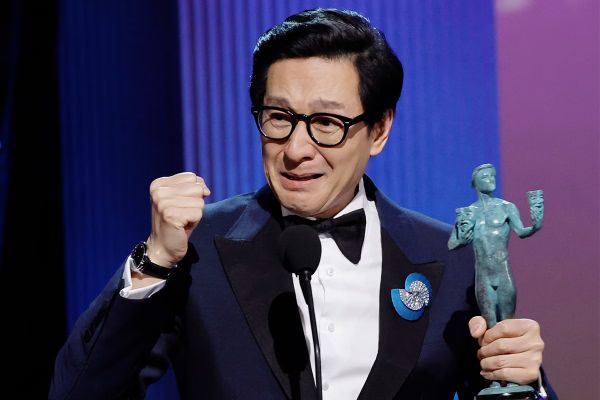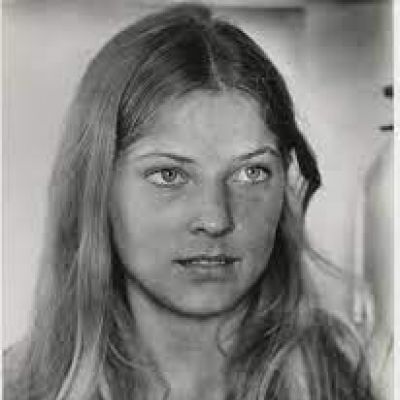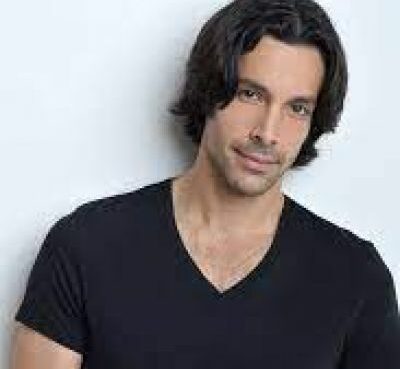In his poignant acceptance speech after winning the Oscar for the best-supporting actor, Ke Huy Quan described his journey as a young boy on a boat from Vietnam to California, via a refugee camp in Hong Kong.
He is the first person of Vietnamese descent to win an Oscar, and one of two Vietnamese actors nominated this year; the other being Hong Chau in The Whale, whose family similarly escaped Vietnam on a boat.
“I spent a year in a refugee camp and ended up on the largest platform in Hollywood,” he remarked. “Some say that such events only occur in the movies. I cannot believe that this is occurring to me. The American dream.”
Yet, the official response in Vietnam has been muted. Ke Huy Quan and his history have received scant coverage in the nearly entirely state-controlled media.
Some have highlighted the actor’s Chinese ethnicity rather than his Vietnamese heritage.
In 1971, he was born in the southern Vietnamese capital of Saigon, where his family was a member of an economically successful ethnic Chinese minority common to many cities in South East Asia.
Nobody mentioned his flight from Vietnam as a refugee during the so-called “boat people” exodus.
He was born in 1971 to a Chinese family in Ho Chi Minh City (Saigon’s official name) and moved to the United States in the late 1970s, according to Thanh Nien.
Tuoi Tre penned, “Quan Ke Huy was born to a Chinese family in Vietnam in 1971, with a mother from Hong Kong and a father from mainland China.”
According to VN Express, the actor “had Chinese parents in the Cho Lon region” of Saigon, which is typically populated by ethnic Chinese.
No one in the Vietnamese government has commented, which is probably less surprising given the Communist Party’s customary silence. Why this hesitation to welcome a successful and now internationally renowned actor who proudly embraces his Vietnamese heritage?
Throughout the 1970s and 1980s, the boat people exodus was one of the saddest tragedies in Vietnam’s recent history. More than 1.5 million people, primarily ethnic Chinese, fled across the South China Sea in flimsy boats.
According to the UNHCR, between two hundred thousand and four hundred thousand people perished, some at the hands of merciless pirates.
For a communist party that, at the time, had just vanquished the United States military force and, more recently, has presided over unprecedented economic growth, this is an experience they would rather forget. The Oscar won by Ke Huy Quan is bringing it all back.
The sad flight of the boat people is also a reminder of Vietnam’s tense relationship with its enormous neighbor, China.
In the early years following World War II, the two communist regimes were ostensibly very close, with China providing substantial aid to North Vietnam in its fight against the French and subsequently the Americans.
By the time of the North Vietnamese victory in April 1975 and the country’s reunification, however, relations had become exceedingly strained.
This occurred as a result of Vietnam’s communist leadership taking the Soviet Union’s side in the Sino-Soviet split and Chinese rapprochement with the United States.
The substantial ethnic Chinese community, primarily in Cho Lon, including the family of Ke Huy Quan, was affected by this.
As the largest capitalist organization in South Vietnam, they were already under attack from the victorious communists, who suspected them of connection to the vanquished regime. Many were transported to camps for reeducation.
Vietnam’s economy remained in a deplorable situation for many years following the war, affected by massive war damage, international isolation, and the new regime’s dogmatic communist policies.
September 1978 saw the start of a mass exodus of ethnic Chinese, who typically had the funds to bribe officials and charter boats.
After the Chinese attack on Vietnam in February 1979, when the anti-Chinese feeling was at its height, the migration surged. It lasted longer than a decade.
The problematic relationship with China persists to the present day, but less so with ethnic Chinese. Viet Kieu, the name given to individuals who left, has been able to return to Vietnam and succeed.
But the population’s anti-Chinese feeling is fueled by dissatisfaction over China’s aggressive practices towards disputed islands in the South China Sea and its expanding economic dominance.
“He is not of Vietnamese heritage; he is merely Chinese-Vietnamese and was born in Vietnam. “This must be clarified,” remarked one user on the BBC Vietnamese Facebook page.
“They should clearly indicate that he is Chinese-American and formerly held Vietnamese nationality! I cannot detect any “Vietnamese origin” in this passage. authored another
Another user, however, argued that “we should declare that he is Vietnamese because he was born in Vietnam and is of Chinese origin.”
From Ho Chi Minh City, author Tran Tien Dung argued on Facebook that Ke Huy Quan’s identity is that of a “Saigon-Cho Lon” person: “For me, Quan Ke Huy draws his vitality from his birthplace in Saigon – Cho Lon, and his reputation from his upbringing in the United States.
Hence, I’d like to congratulate him and express my happiness on social media.”
Nguyen Van Tuan, a professor of medicine at the University of New South Wales in Sydney and also a former boat person, laments the manner in which state media has overlooked Ke Huy Quan’s past as a boat person.
“The plight of refugee boat people in the 1970s and 1980s is a tragic episode in American history. The majority of Vietnamese immigrants arriving in the United States at that time, whether of Chinese heritage or “pure Vietnamese,” were impoverished. They were not fluent in English. However, they endured and prospered.
“Today’s generation in Vietnam cannot comprehend the hardships endured by refugees during that time, in part because they have not been taught about this tragic and painful moment in our nation’s history.”
Also Read: M. Shadows Married His Wife After A 6th-Grade Romance




